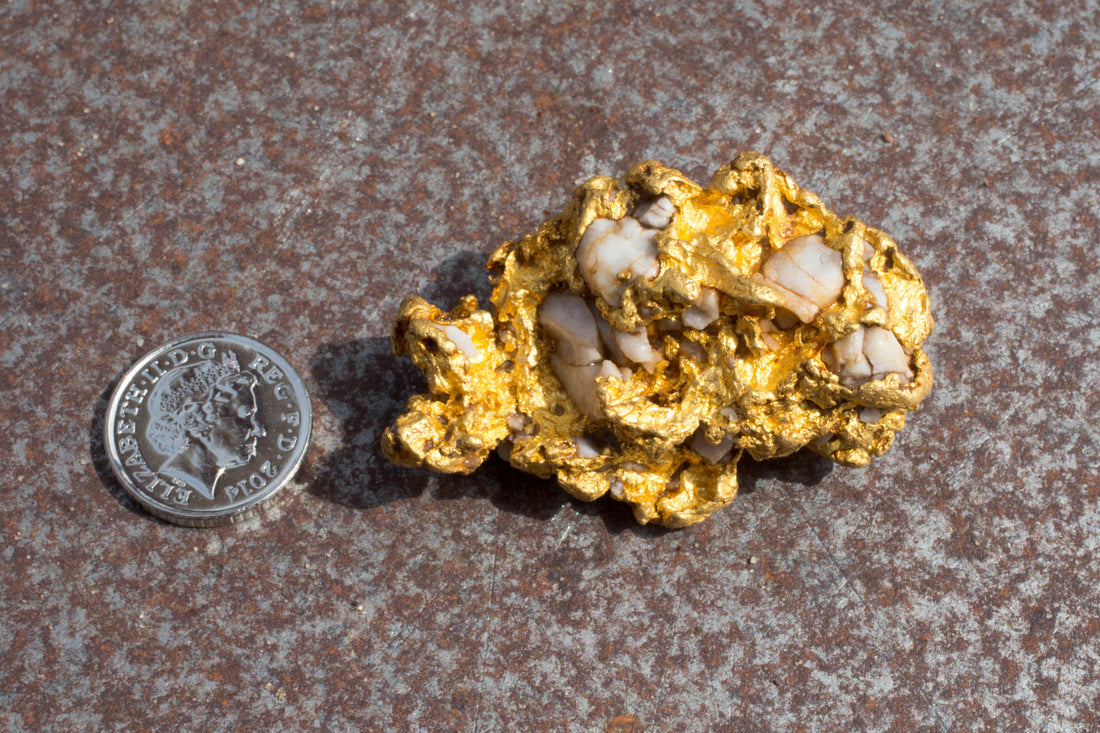
Unearth the Treasures: Best Places to Find Gold in Canada
Share
Gold, a symbol of wealth and luxury, has fascinated prospectors and adventurers for centuries. Canada, with its vast and diverse landscape, is a treasure trove for gold enthusiasts. In this article, we will explore the best places to find gold in Canada, the legality of panning, and what to do if you strike gold.
Where in Canada can you find the most gold?
-
Yukon Territory: When it comes to gold mining, the Yukon Territory is a name that echoes through the ages. The Klondike Gold Rush of the late 1800s put Yukon on the global gold map. Even today, you can find gold in creeks and rivers like Bonanza Creek and Hunker Creek.
-
British Columbia: British Columbia is another gold-rich province. The Cariboo region is particularly famous for its gold discoveries, with the Barkerville Historic Town being a testament to the gold rush era.
-
Ontario: Ontario's Abitibi Gold Belt has been a consistent source of gold for over a century. Red Lake and Timmins are among the most prolific gold-producing areas in the province.
-
Quebec: Val-d'Or and Rouyn-Noranda in Quebec are well-known for their gold mining operations. The region has a long history of gold exploration and production.
-
Nova Scotia: Don't overlook the Atlantic provinces. Nova Scotia, in particular, has a rich history of gold mining, with sites like Moose River Gold Mines attracting prospectors.

Is panning for gold illegal in Canada?
Panning for gold, a timeless method of gold prospecting, is generally legal in Canada. However, there are important caveats to keep in mind:
-
Private Property: Panning on private property without the owner's permission is illegal. Always obtain permission before prospecting on someone else's land.
-
Protected Areas: Certain national parks and protected areas prohibit gold panning to preserve the environment. Ensure you are aware of the regulations in the area you plan to visit.
-
Claim Staking: In some provinces, you may need to stake a claim or obtain a permit for serious prospecting or mining activities. Check with the local authorities for specific requirements.
Can Americans pan for gold in Canada?
Yes, Americans can pan for gold in Canada, but they must follow the same rules and regulations as Canadian residents and adhere to any border entry requirements. Make sure to research and plan accordingly to avoid any legal complications when crossing the border.

What happens if you find a gold nugget in Canada?
Finding a gold nugget in Canada can be an exhilarating experience, but it comes with responsibilities:
-
Claim Staking: If you discover a substantial deposit, you may want to stake a claim and obtain the necessary permits for mining. This process can vary depending on the province, so consult local authorities.
-
Ethical Considerations: Responsible prospecting includes leaving the environment as you found it. Minimize your impact, and report any significant finds to the appropriate authorities.
-
Community and Heritage: Some gold-rich areas have historical and cultural significance. Be mindful of the local communities and their heritage. Engaging with local historians can enhance your experience.
-
Gold Value: Finally, understand the value of your find. Gold prices fluctuate, so it's wise to consult with a reputable assayer or dealer to determine the worth of your discovery.
In conclusion, Canada's diverse landscape offers numerous opportunities for gold prospecting. From the legendary Klondike region in the Yukon to the historic towns of British Columbia and the gold-rich provinces of Ontario, Quebec, and Nova Scotia, there's no shortage of adventure for those seeking to unearth the treasures of this great land. Always be aware of the legal and ethical considerations associated with gold prospecting to ensure a memorable and responsible experience. Happy prospecting!
